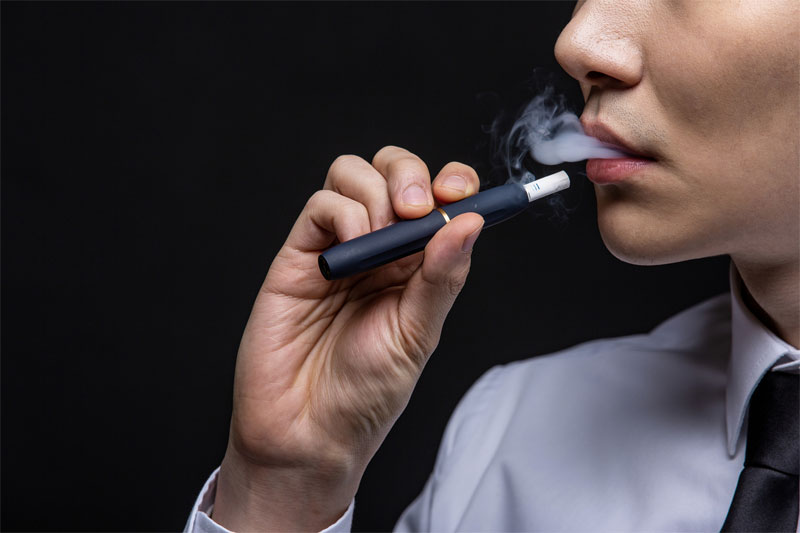Understanding the legalities surrounding the purchase of e-cigarettes is essential for both retailers and consumers. The age at which individuals can buy e-cigarettes varies across different regions, reflecting diverse approaches to tobacco control and youth protection. This article delves into the regulations regarding the sale of e-cigarettes and explores the impact of these laws on public health.
Legal Age to Purchase E-Cigarettes: A Varying Landscape
The legal age for purchasing e-cigarettes is not uniform globally. In the United States, for instance, the federal minimum age is 21. This regulation was instituted as part of the nationwide effort to reduce youth smoking and vaping rates. Other countries may set different age limits based on their own public health objectives and cultural contexts. For example, in the United Kingdom, one must be at least 18 years old to purchase e-cigarettes, aligning with its broader tobacco sale regulations.
- The age limits often mirror those for traditional tobacco products, although enforcement levels may vary.
- Some regions implement stricter controls, such as mandatory identification checks, to prevent sales to minors.
- A few locales even impose harsher penalties on retailers who fail to comply with age restrictions.
Factors Influencing Legal Age Policies
Several factors influence the establishment of legal age requirements for e-cigarette purchases. Public health concerns, specifically the prevention of nicotine addiction among youth, play a significant role. Policymakers weigh the potential health impacts of nicotine exposure in adolescents against the interests of adult smokers seeking less harmful alternatives. Additionally, the what age can you buy e cigarettes debate is influenced by emerging research on e-cigarettes’ health risks and benefits.
“The age limit is crucial not just for compliance but as a measure of societal health priorities.”

Public opinion and advocacy also influence these regulations. Health organizations often lobby for higher age limits, citing studies that link early nicotine use to higher rates of addiction.
The Impact of Age Restrictions on E-Cigarette Use

Implementing age restrictions on e-cigarette sales aims to curb access among youth, who are particularly vulnerable to developing nicotine dependency. Research indicates that age regulations may also influence consumption patterns among adults, possibly prompting shifts towards smoking cessation efforts.
Moreover, by setting a benchmark for legal purchase age, authorities aim to shift societal norms and perceptions regarding the safety and acceptability of vaping. However, the effectiveness of these measures depends significantly on enforcement vigor and public awareness campaigns.
Effective legislation requires synchrony between regulatory frameworks and public health initiatives. While setting a legal age limit is a step forward, accompanying education campaigns are vital to ensure compliance and understanding among both retailers and consumers.
Challenges in Enforcing Age Restrictions
Despite clear laws, enforcing age restrictions presents several challenges. The availability of e-cigarettes through various online platforms complicates regulation efforts. It’s not uncommon for minors to access vaping products via online purchases, sometimes using fake identification or lenient online verification processes.
Moreover, the evolving landscape of e-cigarette products, including various flavors and devices, poses additional hurdles for regulators striving to keep up with market trends that appeal to younger demographics.
Retailers and law enforcement agencies must collaborate closely to enhance compliance. Training programs, regular inspections, and community engagement can bolster enforcement efforts. Without such collaboration, age restrictions might not achieve their desired public health outcomes.
Conclusion: Cultivating a Health-Conscious Society
The legal age to buy e-cigarettes serves as a protective barrier against youth access, reflecting broader societal values towards health and responsibility. However, age restrictions alone are insufficient. A comprehensive approach, incorporating education, robust enforcement, and continuous evaluation, is essential to foster healthier communities and reduce nicotine dependence rates.
As societies evolve, so too must their regulations adapt, ensuring they meet contemporary challenges effectively.
Related Questions Explained
- Why is the legal age for e-cigarettes higher than for other products?
- The higher age limit for e-cigarettes often aligns with efforts to deter early exposure to nicotine, reflecting its addictive nature and potential health risks, which are more pronounced in adolescents.
- Are there any exceptions for purchasing e-cigarettes at a younger age?
- Exceptions are rare and typically non-existent, as the consensus emphasizes protecting youth from nicotine addiction. Some jurisdictions might allow for adult-supervised educational or research purposes.
- How can one ensure they are compliant with local age regulations?
- Staying informed about local laws, seeking guidance from trusted sources, and regular consultations with regulatory bodies can ensure compliance with age-related e-cigarette purchase policies.